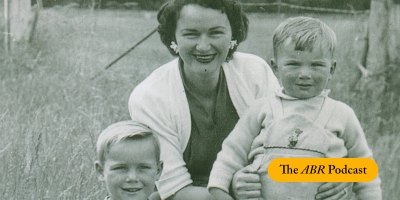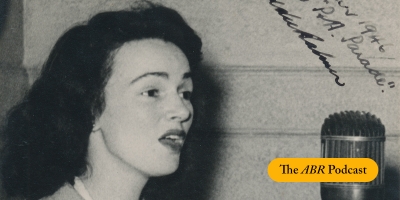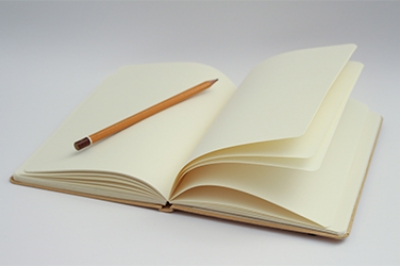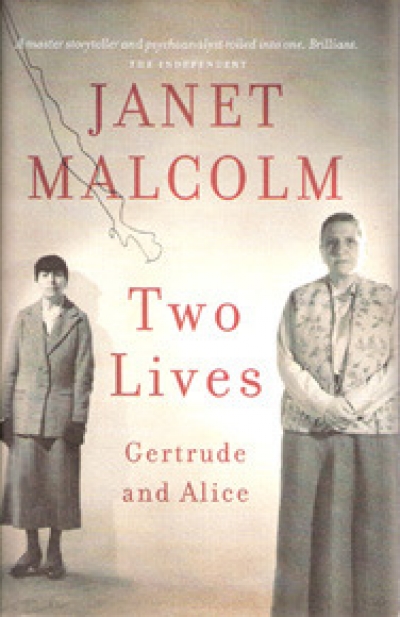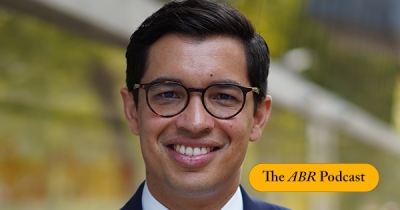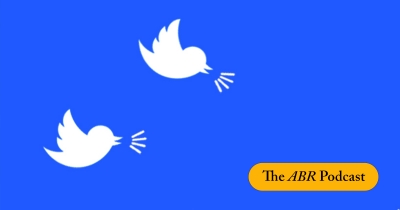Accessibility Tools
- Content scaling 100%
- Font size 100%
- Line height 100%
- Letter spacing 100%
Peter Rose
In this special episode of The ABR Podcast, Peter Rose reads the second and concluding instalment of his 2021 diary, taking us from July to December. These entries continue his chronicle of life under rolling lockdowns – not only for himself, but also for his mother, Elsie, who had moved into aged care earlier that year because of her declining health. Against the arrhythmic schedule of closures and prohibitions, faint tracings of the pre-pandemical world appear: birthday celebrations, an English batting collapse, email trouble, a high five. Written under a cloud of personal and collective uncertainty, these diaries record a son’s observance of his mother’s last days. Elsie Rose died at the age of ninety-five on 15 March 2022.
... (read more)For his sins, Peter Rose has always kept a diary. Over the years, ABR has occasionally published extracts, which have tended to consist of annual highlights laced with gossip and humour. The 2021 instalment is rather different in tone. The lockdowns occasioned by the pandemic also coincided with a marked deterioration in the health of his mother, who moved into aged care in March last year.
... (read more)January 1 Hindmarsh Island. Rose early and sped across the water to inspect the wetlands where hundreds of ibis were roosting – a marvellous sight. But we won’t be going to New South Wales in the middle of the month, following a Covid outbreak in Sydney. Victoria has closed the border, causing much predictable lamentation.
... (read more)‘Other biographers write about him as if he were a normal person, not the weirdest man who ever lived.’ So says Frances Wilson, British author of the book Burning Man (Bloomsbury), a radical new biography of the captivating and contentious D.H. Lawrence. Geordie Williamson, who reviewed Burning Man for ABR’s August issue, described it as a ‘meta-biography’ that is ‘lovely on the page, often thrilling in its daring’. In today’s episode, Wilson sits down with ABR Editor Peter Rose to discuss the complexities of writing about the enigmatic Lawrence.
... (read more)Day flicks its cards, laconic. / Even in April, a flamboyance of colour: / stray perfume for the pent. Burnt leaves / drift away one by one, like concert-goers ...
... (read more)Earlier this year, the National Archives of Australia – after an epic legal battle – finally released the Palace Letters, a substantial cache of correspondence shedding light on the involvement of Buckingham Palace in the lead-up to the dismissal of Gough Whitlam in 1975. In today's episode, Jon Piccini talks with Peter Rose about two new books that interrogate the significance of the letters: The Truth of the Palace Letters by Paul Kelly and Troy Bramston, and The Palace Letters by Jenny Hocking. Piccini reviews both titles in his review in our upcoming January–February issue.
... (read more)Whatever we might think of him, Donald Trump has proven to be one of the most transformative figures in recent history. In today's episode, Timothy J. Lynch talks to ABR Editor Peter Rose about three new and highly critical books on Trump: Too Much and Never Enough by Mary Trump, A Very Stable Genius by Philip Rucker and Carol Leonnig, and The Room Where It Happened by John Bolton. As Lynch writes in his review, 'There is a paradox that these books illustrate but cannot resolve: why is a man so chaotic, so reviled, so malignant also so transformational?’
... (read more)In this week’s ABR Podcast, Peter Rose speaks to Michael L. Ondaatje (Professor of History at the Australian Catholic University) about black American voters’ attitudes towards Donald Trump and the Republican Party. They also discuss recent startling developments in an already tumultuous presidential election.
Michael L. Ondaatje’s article ‘Black and Republican in the age of Trump’ is one of a series of commentaries funded by the Copyright Agency’s Cultural Fund. It appears in the October issue.
... (read more)In today's episode, Johanna Leggatt speaks to ABR Editor Peter Rose about growing disquiet about ‘cancel culture’, censorious voices on social media, and Twitter's threat to writers and journalists. Beginning with the recent case of Rachel Baxendale, a journalist at The Australian, who was subjected to much invective because of her persistent questions about the quarantine fiasco in Victoria, Leggatt laments the ‘routine trashing of reputations on Twitter’ and wonders why Twitter has ‘devolved into a channel for our most juvenile emotions’.
... (read more)
